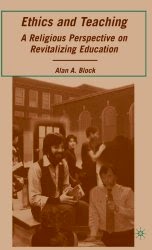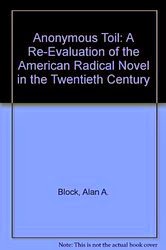
This week there is Giambattista Vico. In his On the Study of Methods of Our Time he
writes that because of the emphasis on the physical as the only valid evidence
of reality, “our young men are unable to engage in the life of the community,
to conduct themselves with sufficient wisdom and prudence; nor can they infuse
into their speech a familiarity with human psychology or permeate their
utterances with passion.” I think that what he is complaining about (in 1708-9)
concerns the failure of education to develop what Horace Mann a century later
will refer to as moral value. Mann argued that the education in the common
school would “protect society against intemperance, avarice, war, slavery,
bigotry, woes of want and wickedness of waste.” I will accept the charge here
that there might be a bit of hyperbole in Mann’s hopes for the common school,
but it is an admirable educational ideal that the liberal education Mann
advocated for the schools could realize. But not in this age of accountability
and measurement. Because that learning derives in large part from the study of
literature, history (not social studies), philosophy, sociology,
psychology—what are erroneously called ‘the soft sciences.’ Isaiah Berlin
writes that Vico’s ’s claim to immortality rests in the principle that the
human being is capable of understanding him/herself because, and in the process
of understanding the past—because he is
able to reconstruct imaginatively (in Aristotle’s phrase) what he did and what
he suffered, his hopes wishes, fears, efforts, his acts and his words, both his
own and those of his fellow.” These can be found in the literatures and the
histories (at least) that comprise the liberal arts, a curriculum in sore
decline in today’s schools.
Here is an irony: at opening
school sessions there is a great deal of talk about civility and how the
University environment might support the development of a civil society. Of
course, outside the university there is no place a civil society may be found
modeled. Not even the churches and synagogues seem free of incivility and
immorality. Certainly we find absolutely no civility in government. And while
the university officials call for civility on campus they also insist we
develop concrete assessment tools that will provide greater levels of exact
measurement in our classes for our students, and that we ensure that our
curriculum places students in jobs. In his play Helen, Euripides wrote “There is much that falsehood seems to make
quite clear.” The technological education that pervades academia provides a
clear perspective on a very false world.
There is a wonderful idea from
George Simmel that I found quoted in Adam Phillips’ book Going Sane. Forget the context of how I became engaged in that
particular book, and the context of where the quote appears does not affect its
relevance here. In his Philosophy of
Money Simmel attributes to our money economy the illusion of precision
about what people demand in the way of goods or services or from each other.
Simmel argues “the money economy enforces the necessity of continuous
mathematical operations in our daily transactions . . . evaluating, weighing,
calculating, and reducing of qualitative values to quantitative ones.” Money
has taught us to measure the value of things down to the exact penny. Simmel oversimplifies,
of course: but perhaps now Elizabeth Barret Browning’s question, “How much do I
love thee?” is now answerable in the most reduced and clear-cut terms. We might
use the exact cost of the gift, or we might construct a rubric and measure the
quantity on the Likert Scale from 1-5.
I do not mean to argue the aim
of education here, but instead to decry the absolute quantification of every
aspect of my life that includes education: where I go everyday of my life.











0 Comments:
Post a Comment
<< Home